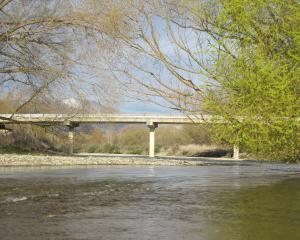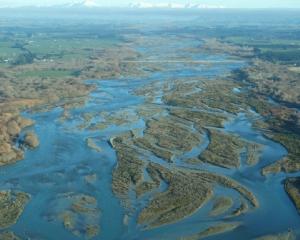New Zealanders will be left with a sad environmental legacy if there is not the political will to prevent further freshwater degradation, the New Zealand Freshwater Sciences Society says.
Its concern for the widespread decline of aquatic biodiversity and water quality in New Zealand has led it for the first time to release a united statement on behalf of its members, following its annual meeting at the University of Otago last week.
''Failure to act with decisiveness and urgency risks further environmental degradation and erosion of our international environmental reputation and branding,'' it said in the statement backed by its members.
The possibilities of more waterborne illness, serious contamination and depletion of groundwater aquifers, and extinction of native fish species would depend on reversing strong detrimental trends, it said.
Otherwise, New Zealanders would be left with a ''sad environmental legacy and a serious financial burden'' from the current generation.
''This will happen unless restoration costs needed to protect and recover freshwater resources and invaluable ecosystem services provided by freshwater are met with urgent, science-led improvements."
Society president Prof David Hamilton, of the University of Waikato, said despite those concerns its members also believed there were examples, even in Otago and Canterbury, where significant environmental improvements had been made without compromising agricultural productivity.
''It can go hand in hand."
Communities were already bearing substantial costs in some places to rectify the damage of intensive agriculture but those could be reduced if best environmental practice was used on farms.
''However critical the situation is, it is one that can be resolved with best practice."
The society has made five recommendations urging further action by the Government, including giving effect to the Land and Water Forum's recommendations, requiring state of the environment reporting and ensuring it was consistent, more effective monitoring of invasive pests and more dedication to long-term monitoring.





